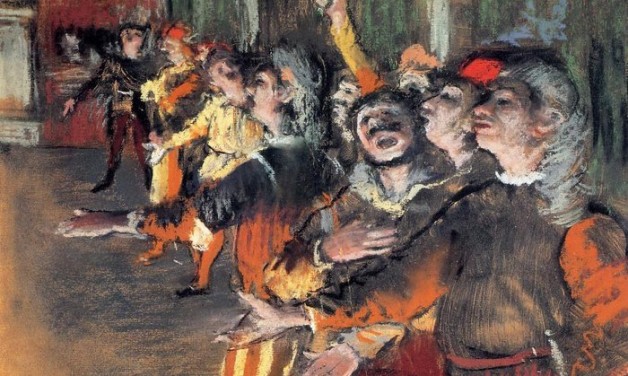In the 1985 musical Les Miserables (recently presented in a new film adaptation), there is no shortage of stirring musical numbers. However, even by its own high standards, around its midway point it reaches an exceptionally rousing pitch. The song “One Day More” opens with the voice of the lead, Jean Valjean. He is soon joined by the lovestruck couple, Cosette and Marius. Then the lonely Eponine chips in. Before long, the leader of the uprising, the crowd of revolutionaries, Inspector Javert, and even the crass innkeepers are caught up in the grand number. Few people can watch this number unfold without a shiver or two coming down the spine.
Of course, this is an old trick in show business. If you want to excite the theatergoers, don’t give them one singer singing one good tune—give them twenty singers singing five good tunes! The trick is to combine the different singers in such a way that they all clearly have their own part and yet all form one unified song. That way you have multiple groups of voices—each with their own melody and their own concerns—all singing at once, one on top of the other, weaving in and out of each other, and yet somehow forming a coherent whole. When effectively executed, the result can be electrifying. But, I don’t think that the powerful effect of this production is a mere matter of numbers, complexity, or volume. No, even if we can’t always articulate it, I think we are stirred by these musical numbers because they reveal to us something of that Great Song in which all mankind plays a part.
In this Great Song, it often feels as if we were singing alone. In the scene described above, all the different parties of singers are technically in different locales, supposedly singing by themselves, wrapped up in their own concerns. And in our own experience it often seems that our respective lives are just solo works alongside other solo works, more chaos than harmony. But such an impression couldn’t be further from the truth! From the heaven-like perspective of the director and the audience, the characters in Les Mis are in fact all joined together on one stage, singing one song. Many melodies though there may be, they are all harmonizing and complimenting each other, forming one unified whole.
From the perspective of our Heavenly Father and those in heaven, our lives are not isolated existences, but rather parts of one giant work which incorporates the whole human race—from the prehistoric caveman to the person who will be born a millennium from now. We are all inextricably linked, forming something that is far greater than the sum of its parts. As it happens, we do not have the privilege of hearing the full beauty of this Great Song on this side of heaven. We just hear those bits and pieces of it that we live through. But by the grace of God we will hear it someday.
And it’s gonna be amazing.
✠
Image: Edgar Degas, The Chorus







